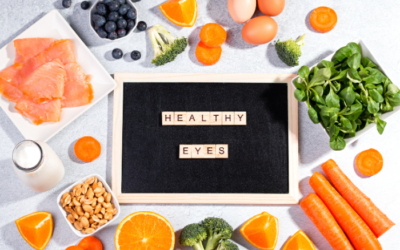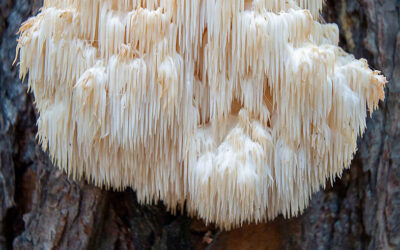7 Natural Tips for a Healthy Prostate
The prostate is a gland that lies at the base of the bladder and is crucial to the urinary tract and sexual health. As men age, the prostate naturally enlarges as hormones change and weaken after the age of 40. This can put pressure on the bladder and urethra and cause symptoms such as frequent urination (especially at night), difficulty urinating, burning sensation, blockage, and dribbling.
There are many natural approaches to support normal prostate functions.
1 Change Your Diet
- Limit your alcohol and caffeine as they can stimulate urine production and irritate the bladder.
- Add flax seeds, watermelon, guava, tomatoes, and pink grapefruit to your diet to support your urinary system.
- Eat whole grains and good fats. Try almonds, walnuts, and avocados.
- Less red meat and more fish.
- Less sugar and salt and more vegetables (at least 5 per day).
2 Get Physical
Regular exercise is crucial for prostate health. According to a study published by Harvard Medical School, those with chronic prostatitis who exercised “experienced significantly less discomfort, anxiety, depression and improved quality of life.” (1)
3 Drink Up
- Decaffeinated green tea is full of antioxidants and catechins which have been shown to support normal prostate size. Reducing inflammation and improving normal urinary function mean green tea is great for the prostate. Using a decaffeinated version avoids irritating the bladder.
- Hibiscus tea contains anti-inflammatory properties good for prostate health.
- Drink 6 to 8 glasses of water a day; just not too close to bedtime when your bladder may wake you in the middle of the night.
4 Herbs and Nutrients for Prostate Health
Saw Palmetto
Saw Palmetto is an extract from the fruit of the dwarf palm. It has been used for urinary issues, including difficulty starting to urinate and having to urinate frequently throughout the night, since the 1900s. It is also used for enlarged prostate symptoms.
Saw Palmetto contains contain flavonoids, fatty acids, phytosterols, and plant sterols. It also has anti-inflammatory properties, lycopene and selenium. (2)
Pygeum
Pygeum, also know as the African cherry tree, is an evergreen found in Africa. It has been traditionally used by African tribes since the early 1700s for bladder discomfort.
Pygeum has been used for enlarged prostate in Europe since the 1960s. Pygeum contains beta-sitosterols which have anti-inflammatory properties. It has also been shown that they may reduce the overgrowth of prostate cells.
Lycopene
Lycopene is a carotenoid phytonutrient found in tomatoes, guava, watermelon, and other foods. It has been found that lycopene can help prevent prostate cancer, as well as fight it. A great way to get lycopene is by adding foods such as tomato sauce, tomato soup, tomato paste and tomato juice to your diet. (3)(4)
5 Sit Down
Pee sitting down. Urinating in the sitting position has been shown to help with urinary flow rate, decrease the number of times you need to go and decrease the amount of residual urine in the bladder.
6 Get Down
Studies show that frequent ejaculation (through sex, masturbation or while dreaming) is beneficial to prostate health and may reduce the risk of prostate cancer. The research found that ejaculation may help to flush the toxins from the prostate gland carcinogens. (5)
7 Up and Down All Night?
Getting up in the middle of the night up to three or four times to urinate? This could be due to an aging prostate. In addition to frequent urination, it can also cause difficulty urinating as well as a burning sensation and/or swelling or blockage of the flow of urine. Not something you want to live with if you don’t have to.
As men age, falling asleep and staying asleep can get harder. So who wants to wake up in the middle of the night just to urinate? The urge to urinate frequently can be caused by the pressure of an enlarged prostate, which lies at the base of the bladder and/or problems with nerve signaling or even an irritated bladder.
Hormone changes in men over 40 cause the prostate to become enlarged and weakened. Difficulty urinating can be caused when an enlarged prostate presses against the urethra. Sometimes even if urine flows, it can be interrupted frequently. Dribbling and urinary urgency can also occur. Sleep deprivation caused by the frequent urge to go and little urine actually exiting can be very hard to experience.
Herbs have been used in traditional medicine for urinary issues for centuries.
- Nettle root saw palmetto and beta-sitosterol – for urine strength
- Pyguem or African Plum Tree – for reducing the number of trips to the bathroom
- Lycopene – antioxidant properties
Remember, the prostate gland is an important part of men’s health. Prostate function is crucial to both urinary and sexual health. Limiting beverages before bed can help reduce the need for frequent urination that can keep you from sleeping through the night. Being active has also shown to help with an enlarged prostate. Avoid stress and limit caffeine and alcohol, which can stimulate urine production and irritate the bladder. Acupuncture can also be helpful for improving circulation and energy in the prostate.
As men age, statistically, they may experience some issues with their prostate. Taking steps early on , even in your 20s and into your 40s, can be a great preventive measure. Into your 50s through your 90s, naturally supporting your prostate function and making it a priority will only help you to feel better and improve your everyday life.
Reference
1 Harvard Health Publishing, Harvard Medical School. 10 diet & exercise tips for prostate health. Healthbeat: 2018 Annual Report on Prostate Diseases.
2 University of Maryland Medical Center, Wilt T et al. Pygeum africanum for benign prostatic hyperplasia. Cochrane Databases of Systematic Reviews 2002; (1)CD001044
3 Barber, NJ, Barber J. Lycopene and Prostate Cancer. Prostate Cancer Prostatic Dis. 2002, 5 (1):6-12
4 Rowles JL 3rd et al. Increased dietary and circulating lycopene are associated with reduced prostate cancer risk: a systematic review and meta-analysis. Prostate Cancer and Prostatic Disease 2017 Apr 25
5 Ejaculation Frequency and Risk of Prostate Cancer: Updated Results with an Additional Decade of Follow-up. Rider, Jennifer R. et al. European Urology, Volume 70 , Issue 6 , 974 – 982

Jemile earned a degree in Food Studies and Writing and has worked for almost 23 years in the medical and health industries. She has been a digital marketing consultant for Acupuncture Atlanta since 2011 as the social media manager and content manager. Writing has been a childhood dream for Jemile and writing daily for clients in the health, wellness, food, and art industries have been phenomenal. Jemile is originally from Brooklyn, NY, and lives in the Hudson Valley, NY. She lives with her husband, two daughters, her dog, and two fish. You can contact Jemile via Linkedin, her mom blog, or her website, lunaroseconsulting.com



